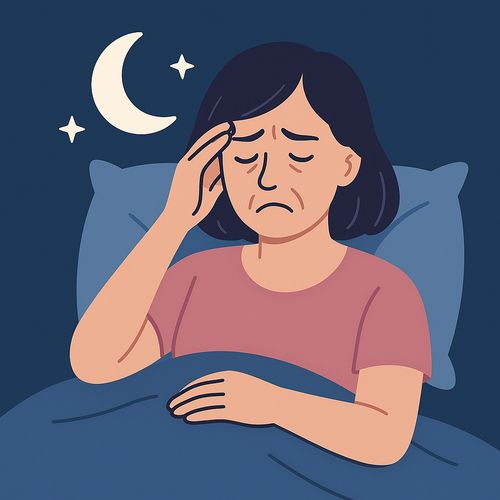Menopause and Insomnia
When we think about the transitions in life, menopause often appears as a chapter filled with hot flashes and mood swings. But for many professional women between 45 and 55, there’s another unwelcome guest lurking in the shadows: insomnia. The connection between menopause and insomnia is all too real, and navigating through this challenging phase can feel overwhelming. If you’ve been tossing and turning at night, you’re not alone, and there are ways to regain control over your sleep.
Take a moment to reflect on a time when you felt truly rested. Remember that sense of clarity and energy? Now picture it slipping away as sleep disturbances start creeping into your nightly routine. It’s like having a pesky roommate who won’t leave, and you deserve better! As our hormones shift during menopause, the delicate balance of sleep patterns can be disrupted, leading to sleep difficulty that affects not just your nights but your days too.
So, how can you reclaim your restful nights? Here are some practical tips that can help you on your journey to improved self-care and resilience.
First, consider your sleep environment. Is your bedroom a sanctuary or a storage unit? Creating a calming space is essential. Think about soft lighting, cozy bedding, and perhaps a soothing scent like lavender. A well-designed sleep space can make a significant difference in how quickly you drift off and how deeply you stay asleep.
Next, let’s chat about your bedtime routine. Just like you wouldn’t skip the warm-up before a big meeting, your body needs a proper wind-down period before sleep. Try incorporating relaxation techniques such as gentle yoga, deep breathing, or even reading a few pages of a favorite book. Space out these activities to signal to your body that it’s time to slow down and prepare for rest.
Another critical aspect to consider is how what you consume impacts your sleep. Caffeine and alcohol might seem like the life of the party, but they can wreak havoc on your sleep patterns. Instead, try a calming herbal tea in the evening. A cup of chamomile paired with a quiet moment can do wonders for your ability to unwind.
We can’t ignore the role of exercise, either. Regular physical activity is a proven way to combat insomnia. Even a brisk walk during your lunch break or a quick workout after work can boost your mood and promote better sleep. It’s a win-win!
Lastly, don’t shy away from seeking support. Whether it’s a trusted friend, a healthcare professional, or even an online community of women navigating similar experiences, sharing your struggles can lighten the load. True stories of resilience can be inspiring and provide you with new strategies to try.
As you navigate through menopause and the accompanying insomnia, remember that this phase is not just about managing symptoms; it’s about thriving. Your journey may be filled with challenges, but it’s also an opportunity to prioritize self-care and resilience. Embrace this chapter with grace, and reclaim those restful nights. You’ve got this!

